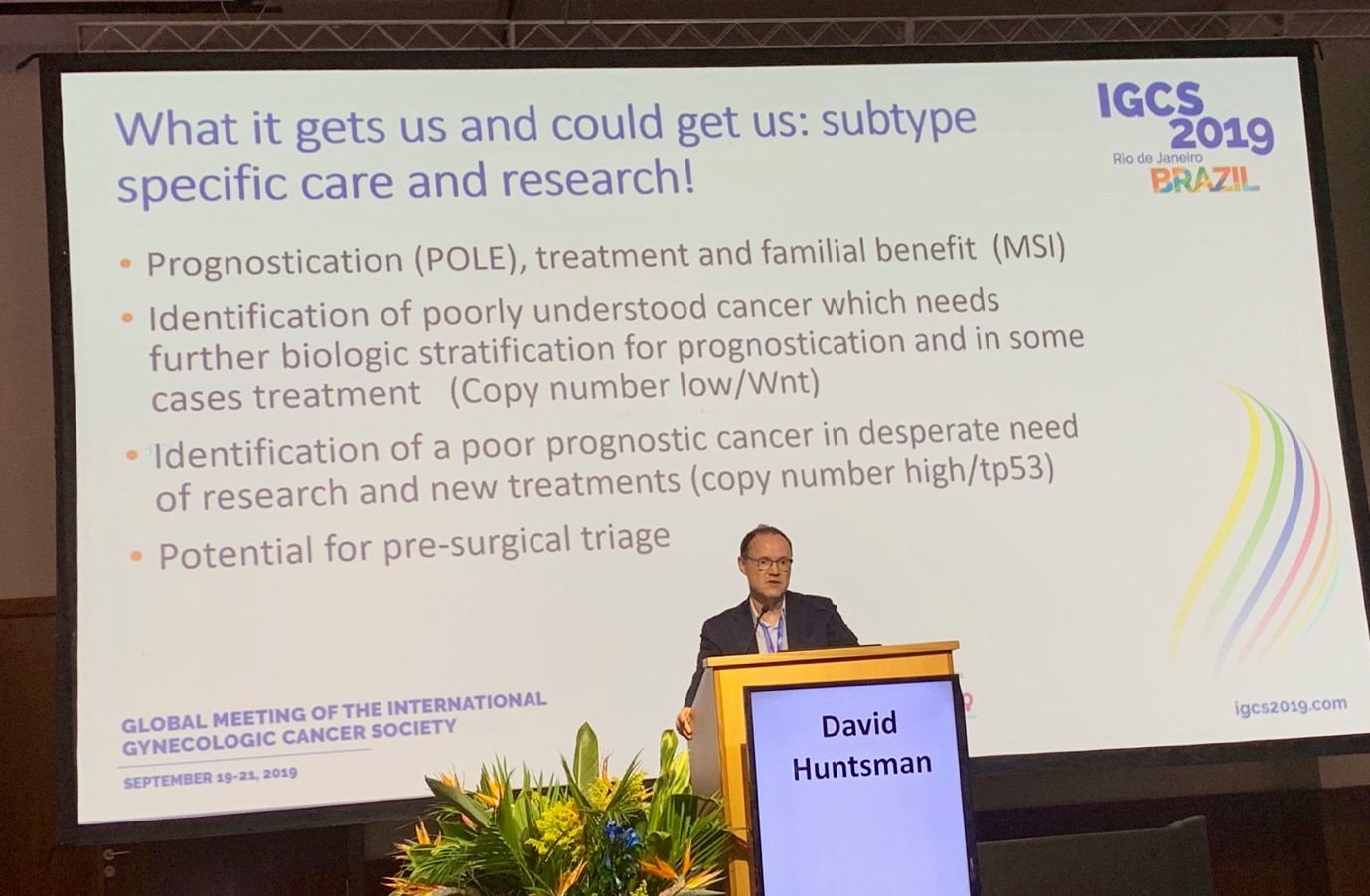IGCS & ESMO Meeting outcomes: Research to improve the survival of patients
Research to improve the survival of patients
The first of three posts from Prof. Andreas Obermair about some of the insights he has taken away from the 2019 Annual Scientific Meeting of the International Gynecological Cancer Society, held in Rio de Janeiro, Brazil a couple of weeks ago and from the European Society of Medical Oncology in Barcelona.
I estimate that survival of patients diagnosed with ovarian and with all types of gynaecological cancer will improve vastly as the result of powerful research in the next few years.
For ovarian cancer, it was shown for the first time that a group of medications, called Parp inhibitors, is effective not only in patients with BRCA mutations but for all patients with ovarian cancer, regardless of their BRCA mutation status. This means that survival outcomes of women diagnosed with ovarian cancer will become significantly better. This knowledge will change clinical practice in Australia, once our government approves of the listings and makes it available to all women diagnosed with ovarian cancer.
Similarly, for patients with advanced-stage endometrial cancer that are classified as MSI high (carriers of Lynch syndrome) a novel drug (Pembrolizumab) has been approved by the Australian government while I was overseas attending the conference. This approval was granted on a large clinical trial done in Australia that was noticed globally. This drug will help hundreds of women every year because typically patients with MSI-high tumours can expect a poorer prognosis than other endometrial cancer patients.

If you are interested in supporting gynaecological cancer research visit http://bit.ly/2KJrk2L for more information on our upcoming Larapinta Trail fundraising trek.
